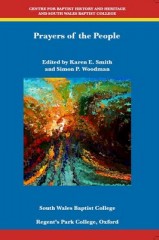After several days of rain (albeit with some pleasant evenings) the sun is shining in Glasgow... so on with the sun hat for my stroll to work, and carry the rain coat just in case. But it's Friday, the end of the working week for most people and the weekend looms large.
I am looking forward to catching up with some friends of mine from the North West of England who are up this weekend - and hopefully with some others next weekend. Summer is on its way!
There's a song, isn't there, that says 'the sun is out, the skies are blue, there's not a cloud to spoil the view, but it's raining, raining in my heart.' I know far too many people for whom this is true right now. Some with the ache of recent bereavement, some with new diagnoses of primary and /or metastatic cancer, some with the ongoing agony of chronic conditions, some who are in families and/or relationships that are difficult. Were I to list them it'd be a very long post. Some of them read this stuff - to them a cyber holy hug - some of them don't, but each one of them matters.
Thoughts today especially with Annie, as she gets a second opinion on her treatment options.
Suffering God, who in Christ has felt the depths of human sorrow, hold safe in your embrace all for whom today brings pain, fear, sickness or hopelessness. Grant wisdom and compassion, skill and courage to all, professional or otherwise, whose task is to care for those who are dis-eased in body, mind or spirit, whether acute or chronic. And when the words fail us, and we stare into the dark, let your voice be heard in the sound of silence... Amen.
 It must be correct, it was on the 'this day in history' slot on Radio 2's Chris Evans Show today... on this day in 1928 sliced bread was sold for the first time.
It must be correct, it was on the 'this day in history' slot on Radio 2's Chris Evans Show today... on this day in 1928 sliced bread was sold for the first time. Many of you, I know, have been following
Many of you, I know, have been following  Recently a book of prayers written by and for Baptists was published in honour of Revd Dr John Weaver, entitled Prayers of the People it is editted by Karen Smithj and Simon Woodman. I now have a copy and am enjoying reading my way through parts of the book seeking stuff to use in worship over the summer months. Worth purchasing if you, like me, sometimes find you dry up when faced with a whole run of services to prepare.
Recently a book of prayers written by and for Baptists was published in honour of Revd Dr John Weaver, entitled Prayers of the People it is editted by Karen Smithj and Simon Woodman. I now have a copy and am enjoying reading my way through parts of the book seeking stuff to use in worship over the summer months. Worth purchasing if you, like me, sometimes find you dry up when faced with a whole run of services to prepare.